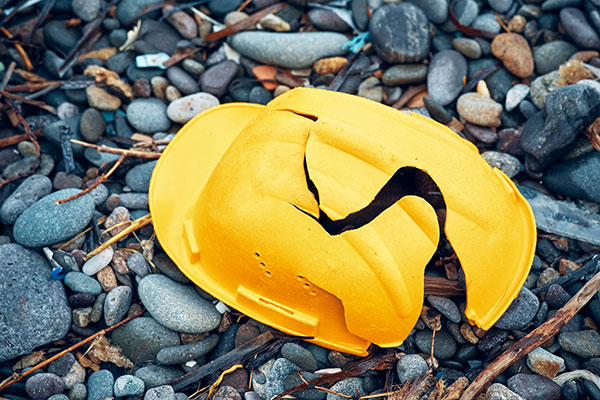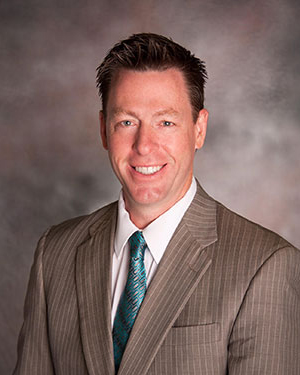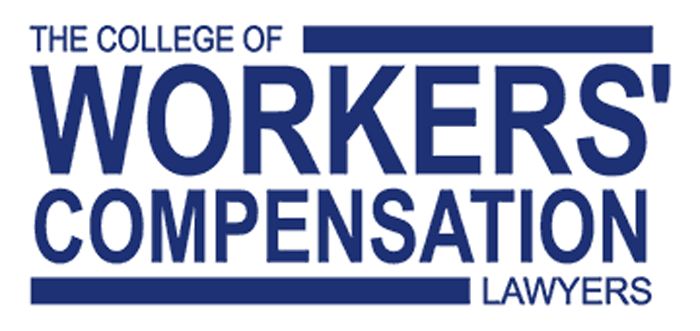Everyone has a bad day at work sooner or later, but most of us are able to return home to our loved ones at the end of the day. The worst-possible day is when a loved one who left for work never comes home.
If you’ve recently lost a loved one in a tragic workplace accident, we’d like to extend our deepest condolences from the bottom of our hearts. The pain and grief you may be experiencing can make it difficult to think clearly, and you likely have many questions about what comes next. We want you to know that you don’t have to handle this alone.
Here at Finderson Law, we regularly represent grieving spouses and families who are now forced to navigate life without their loved one. One of the biggest concerns in these situations is securing the financial future of the individual or family who not only lost a loved one but also a primary source of income.
If you have questions and require assistance when it comes to securing your financial future following the death of a loved one, then it’s time to reach out to a knowledgeable and experienced attorney near you. For over 25 years, our Fort Wayne lawyers have remained dedicated to providing the best representation possible to individuals and families across Indiana.
You’re not alone.
“I’ve been handling workers’ comp cases for over 25 years. Our firm knows the law, knows the cases and knows the process inside and out. You’re unlikely to have a situation we haven’t seen before. And as with any other situation involving insurance companies, you KNOW that the other side is going to have lawyers looking at your case.
Call us today. We don’t charge you for the initial consultation, we defer the small flat fee to the end of the case and earn no additional fee unless we make a recovery for you. So, you really don’t have much to lose. What you could gain, however, is peace of mind in knowing that your workers’ comp claim is being handled by a professional, one who is 100% dedicated to fairness to YOU.
And that’s us.”
More on Indiana Workers’ Comp System and How We Can Help

Workplace death statistics: by the numbers
Though the number of fatal work accidents has generally declined in recent decades, the occupational injury and death rate continues to be an epidemic problem in the U.S., as this sobering data from a U.S. Bureau of Labor Statistics (BLS) 2018 report shows:
- There were 5,250 fatal work injuries recorded in the United States in 2018, a 2 percent increase compared to 2017.
- Fatalities to non-Hispanic Black or African-American workers increased 16 percent, the highest total since 1999.
- Though the number of fatalities declined for workers aged 65 years and over, their fatal work injury rate is still more than double the all-worker rate.
- Men are far more likely to be killed on the job. The fatal occupational injury rate for men was 5.7, compared to 0.6 for women.
- A total of 20 states and the District of Columbia had fewer fatal injuries in 2018 than 2017, while 28 states had more. Indiana saw a 25.36 percent increase in fatal occupational injuries in 2018, with the worker death rate increasing from 4.5 in 2017 to 5.6 in 2018. Both of these rates are higher than the national average of 3.5.
- The 2018 Census of Fatal Occupational Injuries report shows 173 workers lost their lives in a workplace accident in the Hoosier State.
Workplace deaths by cause
The cause of workplace fatalities varies greatly depending on the industry and the type of work being performed; however, statistics show that there are some common threads. A few of the most common causes of worker death in the U.S. include:
- Auto accidents. Transportation incidents are by far the most frequent type of fatal event in the workplace, accounting for 40 percent of all work-related fatalities in 2018.
- Slip, trip and falls. Fatal falls, slips and trips decreased 11 percent in 2018 after a record high in 2017; however, they remain one of the most common causes of worker death—especially in the construction industry.
- Struck by objects or caught in equipment. Incidents involving contact with objects and equipment increased 13 percent in 2018, driven by a 39 percent increase in workers caught in running equipment or machinery and a 17 percent increase in workers struck by falling objects or equipment.
- Worker intoxication/overdose. Unintentional overdoses due to nonmedical use of drugs or alcohol while at work rose for the 6th consecutive year in 2018, increasing by 12 percent from 272 to 305.
- Workplace violence. Violence and other injuries by persons or animals increased 3 percent in 2018, due in part to an 11 percent increase in work-related suicides.
- Toxic exposure or unsafe environment. Whether exposed to electricity (electrocution), extreme weather or a harmful substance such as a toxic chemical, this category accounts for a large portion of workplace fatalities each year.
Workplace deaths by occupation
While a person in any industry or job can be seriously injured or killed while on the clock, federal data shows that certain professions repeatedly rank highest when it comes to workplace death rates.
Here’s a list of the most dangerous and deadly professions in Indiana and across the U.S., according to the BLS:
- Truckers and commercial drivers. In 2018, driver/sales workers and truck drivers had the most fatalities of any broad occupation group. Heavy and tractor-trailer truck drivers had the most fatalities.
- Loggers. Fatal logging accidents happened 10 times more often than the general rate of worker fatalities across all workers.
- Fishers. Fishermen, fisherwomen and related fishing workers were killed on the job at a rate 10 times higher than the national average.
- Pilots and flight engineers. Aircraft pilots and flight engineers had a workplace fatality rate of nearly 60 deaths per 100,000 full-time equivalent workers, far beyond the average of 3.5 fatalities per 100,000 workers.
- Roofers. Roofers were more than 10 times more likely to be killed on the job than the average American.
- Law enforcement. Police and sheriff’s patrol officer fatalities in 2018 went up 14 percent compared to the prior year.
- Independent workers. Officials only recently began identifying fatal injuries to independent workers, which encompass people who are involved in a work relationship that is finite and involves a single task, short-term contract or freelance work (i.e. freelance truck drivers, construction and extraction workers). Independent workers comprised 12 percent of all fatal injuries in 2018.
Other professions with higher-than-average occupational fatality rates include construction laborers and extraction workers; refuse and recyclable material collectors; farmers, ranchers and other agricultural managers; structural iron and steel workers; and landscaping, lawn service and groundskeeping workers.
Who is eligible for workers’ comp death benefits?
If a worker is killed on the job, the workers’ compensation benefits that would have been awarded to them had they survived their injury go to their “dependents” instead. In Indiana, there are 2 primary categories of eligible dependents:
Presumptive dependents
Death benefits are generally equally divided among a deceased worker’s presumptive dependents, which includes:
- Surviving spouse (so long as they don’t re-marry)
- Unmarried children under the age of 21 who either lived with the deceased upon their death or who were reliant on the deceased worker’s support
- Children age 21 or above who have never been married and are mentally or physically handicapped, or who are keeping house for the employee and not otherwise gainfully employed
Dependents-in-fact
If there are no presumptive dependents at the time of the worker’s death, then dependents-in-fact may be eligible for death benefits. This category includes any individuals who are related by blood or marriage to the deceased worker who rely on the deceased’s income (either partially or totally).
Examples of dependents-in-fact might include:
- A nephew of the deceased who was raised and supported by their uncle who was killed on the job
- A mother-in-law who was cared for by her daughter-in-law who is now deceased
What workers’ comp benefits are available for a fatal accident?
Most businesses and companies in Indiana are required to carry workers’ compensation insurance. According to Indiana workers’ compensation law (IN Code § 22-3-3-17 (2017)), eligible dependents of a person who suffered a fatal workplace injury are entitled to certain payment through the workers’ compensation system.
These benefits include compensation for:
- Medical bills. The employer and/or their workers’ compensation insurance company must cover the cost of any medical expenses incurred as a result of the work-related injury prior to the person’s death.
- Lost wages. Most dependents can receive 66 ⅔ percent of the deceased’s average weekly earnings (their total weekly wage minus what would have been taken out for taxes) for a total of 500 weeks.
- Funeral expenses. The employer and/or their workers’ compensation insurance company is also required to pay up to $7,500 for burial costs.
Workers’ comp vs. wrongful death
Notably, workers’ compensation does NOT provide for compensation for future loss of income or benefits, nor does it cover non-economic damages that you might otherwise be able to recover from a wrongful death lawsuit such as pain and suffering and loss of consortium.
That said, there are some rare exceptions that allow some people to sue outside of workers’ compensation and recover additional personal injury damages. These exceptions include:
- If a third party (someone who is not your loved one’s employer) caused their death.
- If an employer’s intentional actions led to your loved one’s death.
- If a defective product resulted in your loved one’s death.
- If your loved one’s employer doesn’t carry workers’ compensation insurance.
If you believe that any of these statements are true, then it’s important to understand that your case may fall beyond the bounds of workers’ compensation. You should consult with an experienced wrongful death lawyer near you to discuss your case. Otherwise, your case should be reviewed by a workers’ compensation attorney who specializes in fatal accidents.
When to contact a workplace fatality attorney
Not all workers’ compensation claims require professional legal counsel. For instance, minor injuries that aren’t disputed by an employer or their workers’ compensation insurance provider may be resolved quickly and without dispute. However, if you lost a loved one due to a job-related accident, then it’s imperative that you protect your rights by meeting with an experienced workers’ compensation attorney as soon as possible.
When it comes to compensation for a workplace fatality, employers and insurance regularly engage in sneaky and manipulative tactics in order to reduce or deny coverage to eligible dependents. The stakes are high in these types of cases and the last thing you need is to gamble your financial future by trying to handle it on your own.
Whether you wish to file a wrongful death or workers’ compensation claim, it’s important to understand that the clock is ticking. The statute of limitations places a time limit on how long you have to file a claim. The sooner you speak with a knowledgeable attorney about your rights, the more time they have to prepare a strong case on your behalf.
At Finderson Law, our Fort Wayne attorneys have fought on behalf of injured workers for over 25 years. Whatever your questions or concerns, we can provide the answers, skillfully represent your best interests and ease some of the pressure and stress you may be experiencing during this difficult time. Known for being compassionate and tireless advocates, our attorneys are diligent problem solvers who partner with our clients to help them meet their objectives and favorably resolve the most complex legal matters.
We’ve helped hundreds of clients. Our history of providing superior legal services —and delivering exceptional results — has earned us a 5-star rating on Facebook and Google.
REVIEWS FROM OUR CLIENTS
Great to work with. Went above and beyond to help us. Very professional and personable. They cared about me and getting done what was needed. Would highly recommend this firm. - D.P.
Always on top of the process and keeps in contact. Communication to me is key regardless if they are making progress or not and they were always answering the phone or returning calls promptly and answering any questions along the way. Top notch and while I hope to never use them again, I highly recommend them. Excellent and phenomenal! - H.H.
Roger went above and beyond for me and got me the results I needed. I'm extremely satisfied with how things turned out! Hopefully, I will not have to visit the office again; but, if I do need a lawyer, I know where to go! - T.
Serving Fort Wayne & Communities Across Indiana
If your loved one was killed in a work-related accident or due to an occupational illness, don’t hesitate to contact our law firm to find out more about your legal options and learn how skilled representation can make all the difference in your case. From our law office in Fort Wayne, we are proud to represent clients throughout Allen County and the state of Indiana.






 744 E Till Rd, Suite 102
744 E Till Rd, Suite 102

